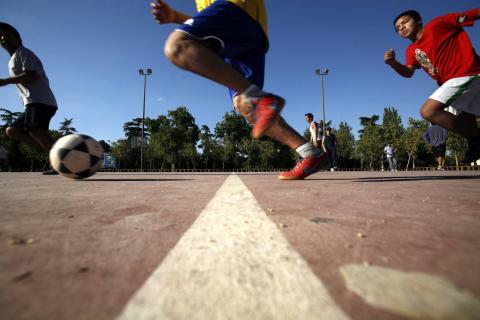Peer genes in youth influence future risk of addiction and psychiatric disorders, study finds
A team of researchers has analysed data from more than 650,000 residents in Sweden and concluded that the genetic predisposition of peers - especially in high school - influences one's risk of developing anxiety, depression or drug abuse in the future. According to the authors, who publish the results in the American Journal of Psychiatry, this relationship appears "even after controlling statistically for whether peers were affected or not".

Lobo - Amigos (EN)
Alberto Ortiz Lobo
Doctor of Medicine and Psychiatrist at the Carlos III Day Hospital - La Paz University Hospital (Madrid)
Mental disorders are the expression of the complex interaction, in a given socio-cultural context, of life events, relational experiences with attachment figures, biographical, biological and psychological factors. The definition of diagnoses is the result of the consensus of a group of academic professionals and we do not have objective analyses, laboratory tests or neuroimaging that identify what we call a mental disorder, whatever it may be (and there are such tests for neurological disorders). Nor are there genetic markers that allow for its diagnosis.
Research into the influence of biological factors on the onset of mental disorders may be of interest, but despite millions of dollars of investment and enormous scientific effort, no biological markers have been found for any mental disorder, and possible individual genetic predisposition has yet to materialise in any relevant finding. This means that the presumed social effects of the estimated genetic load investigated in the article are even more blurred and, in any case, have no significance in clinical practice.
Salvatore et al.
- Research article
- Peer reviewed
- Observational study
- People



